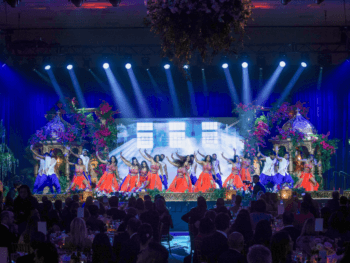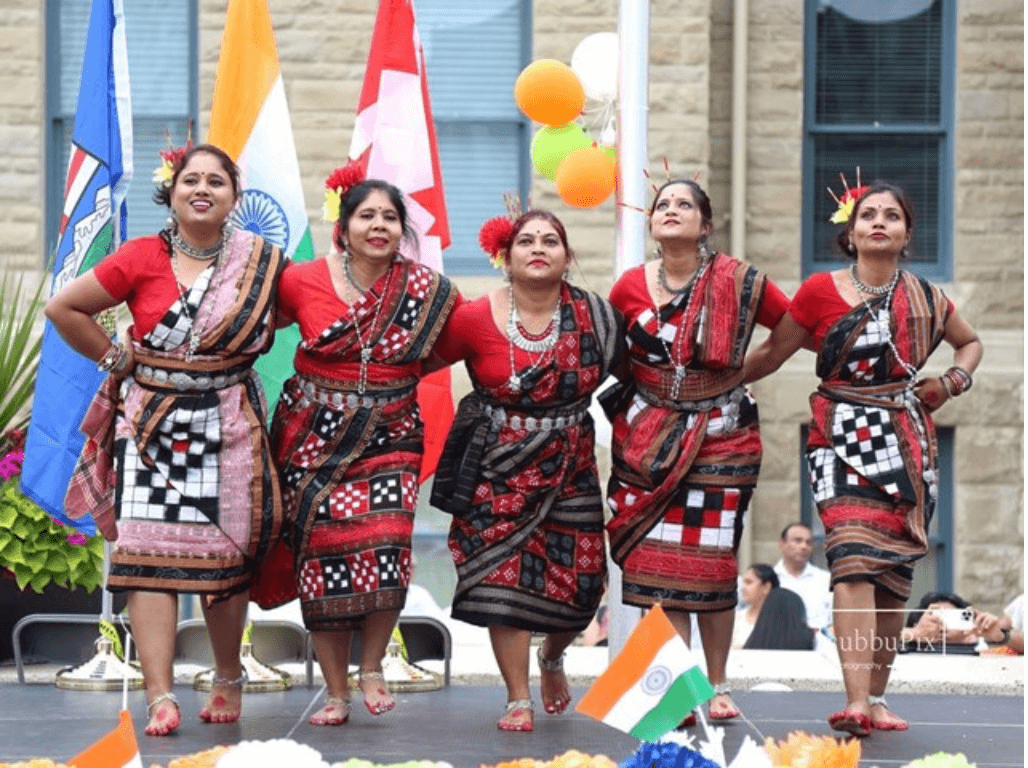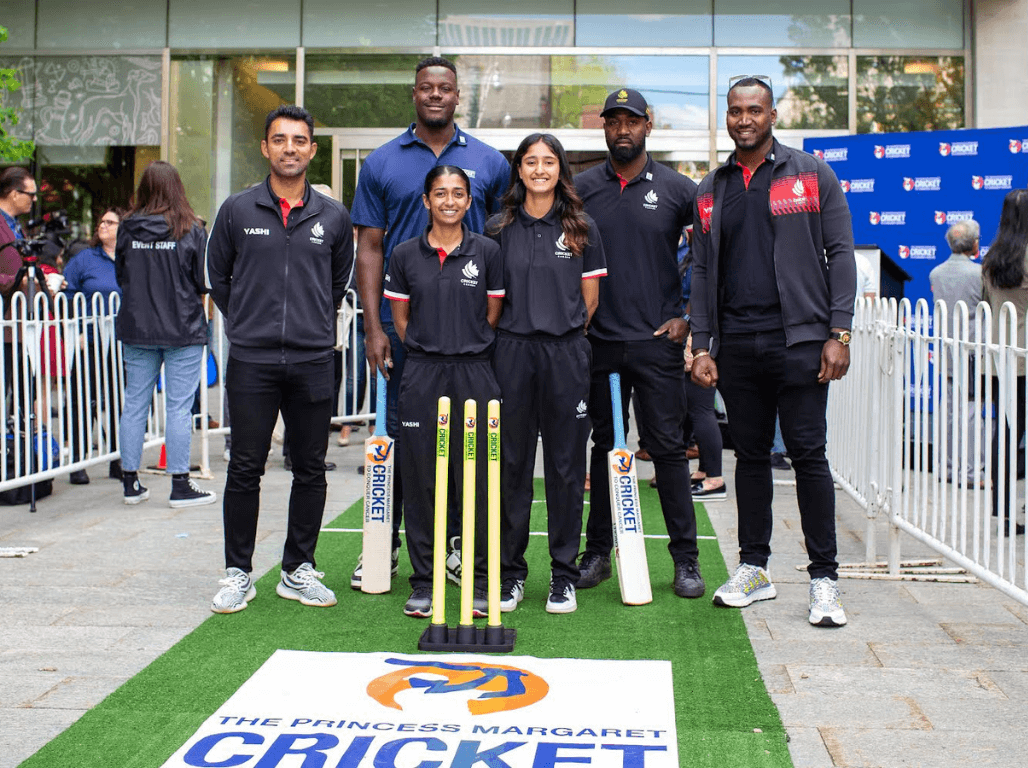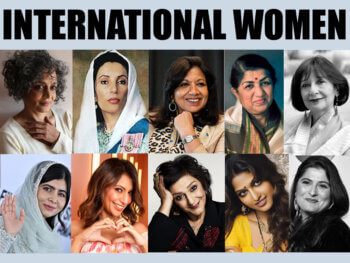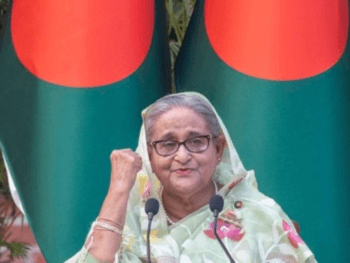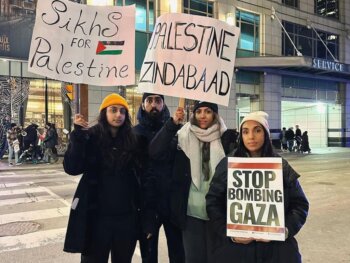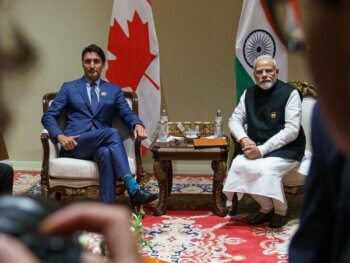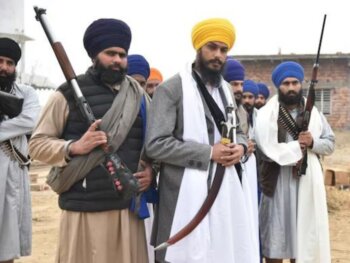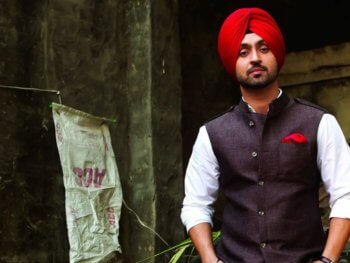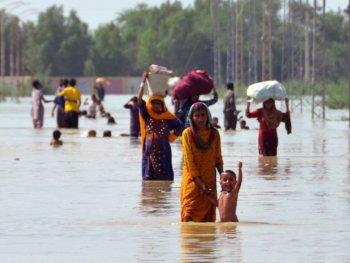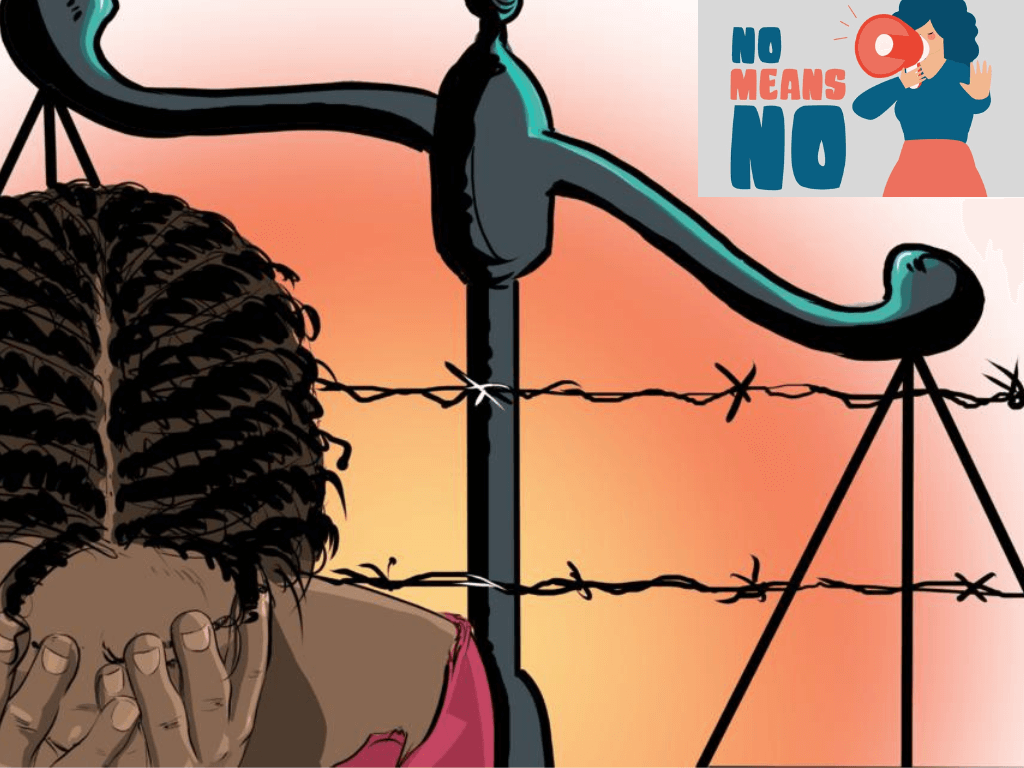
The Heartbreaking Failure Of The System: Dr. Moumita Debnath & The Unheard Cries Of Rape Victims
Culture Aug 26, 2024
ANOKHI’s Entertainment Editor, Mehak Kapoor, has penned this heartfelt piece on the horrific assault of Dr. Moumita Debnath in India, and the overall culture of rape & misogyny that is prevalent in South Asia.
In 2012, the year of the Nirbhaya case, India recorded 24,923 rape cases, according to the National Crime Records Bureau (NCRB). Since then, the annual number has steadily risen, reaching 31,677 by 2021, and continuing to escalate through 2024. In 2016, the number of reported assaults peaked at nearly 39,000. Despite a significant drop during the COVID-19 pandemic year in 2020, the numbers have remained alarming. By 2018, a government report indicated that, on average, a woman reported a rape every 15 minutes nationwide.
It is unclear whether the term recorded refers to cases that were reported, brought to trial, or resulted in convictions. Additionally, these figures do not account for instances of rape that go unreported or unrecorded.
The situation has deteriorated further, with Delhi witnessing a 1.25% increase in crimes against women in 2022, totalling 14,158 incidents, up from 13,982 in 2021. This included 1,204 rape cases, 129 dowry-related deaths, and 3,909 kidnappings or abductions. These statistics underscore a grim reality: despite widespread protests and legal reforms, the safety of women in Delhi and across India remains severely compromised.
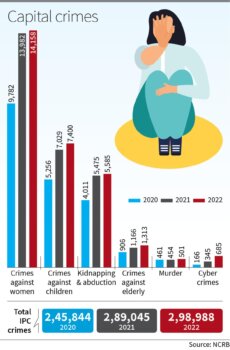
In the last five years, Bangladesh has seen over 27,000 rape cases and nearly 60,000 incidents of violence against women reported to police stations, as stated by the police headquarters. In 2022, there were 4,762 reported rape cases and 9,768 cases of violence against women.
In 2013, Sri Lanka’s rape rate stood at 10.6 cases per 100,000 people. This marked an increase from 7.4 cases per 100,000 in 2004, reflecting an average annual growth rate of 6.57%.
The brutal act of rape is a harrowing violation that shatters the soul and scars the spirit of women who endure it. It is not just an attack on the body, but a deep, cruel wound inflicted on the very essence of their being. The pain lingers long after the physical injuries have healed, as survivors are left to grapple with a society that often blames and shames them for the horrors they have endured. Each instance of rape is a reminder of the pervasive fear and vulnerability that so many women live with every day, and it is a stark testament to the failure of humanity to protect its most vulnerable.
The anguish, the silence, and the trauma are not just the burden of those who have been assaulted—they are a collective stain on the conscience of the world. Every time a woman is raped, a part of our shared humanity is violated, and we are all complicit in the tragedy of a society that allows such violence to continue.
Research into convicted rapists uncovers several crucial factors driving their sexual aggression. Central to these findings is a pervasive sense of deep-seated anger towards women and a pronounced need to assert control or dominance. Marshall et al. (2001) found that male rapists demonstrate markedly lower levels of empathy for women who have been sexually assaulted by strangers. Social attitudes towards women have proven to be the strongest predictor of rape rates in India. The core issue stems from the pervasive misogyny deeply ingrained in Indian society.
In a tragic incident, a Spanish travel blogger with over 200,000 Instagram followers, who also holds Brazilian citizenship, was gang-raped while travelling with her partner in Jharkhand, eastern India. The couple, who had stopped their motorbikes to rest for the night, set up a tent in the remote Dumka district. There, they were violently attacked by a group of seven men. The assault occurred within the Hansdiha police station area as they were on their way to Nepal from West Bengal. The horrific event unfolded while they were camping in a desolate part of Kurmahat village. Authorities have arrested three of the seven suspects, and the victim has been given a ₹10 lakh compensation cheque.
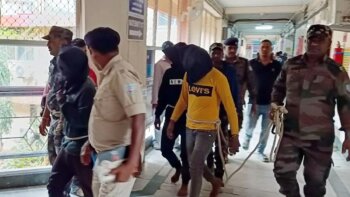
On February 9, 2012, a 19-year-old girl, Kiran Negi was brutally raped and murdered in Chhawla, Dwarka, Delhi. Although the trial court and Delhi High Court had sentenced three men to death, the Supreme Court overturned these convictions on November 7, 2022, citing significant flaws in the investigation, including a lack of identification procedures and witnesses. The court found the evidence insufficient and nullified the previous judgments. The victim’s father, alongside Delhi Lieutenant Governor V.K. Saxena, has voiced strong objections to the ruling and is advocating for an appeal. The Delhi government intends to challenge the acquittal in the Supreme Court, emphasizing the relevance of DNA expert testimony similar to that used in the Nirbhaya case.
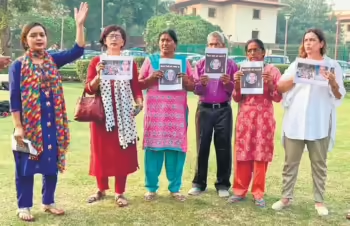
The 2012 gang rape remains a haunting memory, a nightmarish event that unfolded on a dark evening in New Delhi. It was more than just shocking; it was a profound shock to the nation’s conscience, a moment that evoked deep sadness, intense horror, and a pervasive sense of vulnerability throughout the country.
The brutal violence of that night left an enduring impact, not only on the city but on the hearts of millions who grieved the loss of innocence and the tragic fate of a young woman who came to symbolize the fight against gender-based violence. In December 2012, Jyoti Singh, a 23-year-old physiotherapy student known as Nirbhaya (the fearless one), boarded a bus in New Delhi around 9 p.m., expecting a routine journey home. Instead, she faced a horrific ordeal, being violently gang-raped and assaulted with an iron rod by six men. Her injuries were so severe that she had to be airlifted to Mount Elizabeth Hospital in Singapore, where she sadly succumbed on December 29. This appalling crime sparked widespread outrage and protests across India, fueling demands for justice and urgent reforms.
Nearly 12 years later, outrage has erupted once again over the rape and murder of Dr Moumita Debnath, a 31-year-old trainee doctor in Kolkata. On August 9, 2024, while resting in a seminar room after a late-night shift, she was attacked. In response, thousands of doctors have gone on strike, demanding safer working conditions, while many others have taken to the streets, calling for justice. The images, videos, and details related to this case deeply unsettled me; I couldn’t sleep the night the news broke. I am profoundly shaken and find myself praying for the safety and well-being of women everywhere every day.
An autopsy revealed that Debnath had been subjected to severe sexual assault and gang rape by multiple perpetrators before being murdered by strangulation. The detailed four-page report documented severe injuries, including a deep wound in her genital area, as well as injuries to her lips, left leg, right hand, ring finger, neck, and face. It suggested that the scratches on her face were likely caused by the accused’s fingernails. The report also noted that force was applied to her mouth, eyes, and throat, leading to strangulation and a fracture of the thyroid cartilage. There was noticeable bleeding from her eyes, mouth, and genital area, with genital injuries indicating extreme sexual violence and torture. Additionally, the report found approximately 150 mg of semen in the vaginal swab.
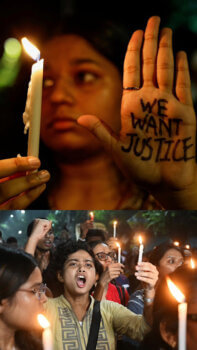
From the start, my question remains unchanged:
What fault lies with the victims of rape, the survivors, and the women who have tragically lost their lives? What wrong did they commit to deserve such horror? Why is it that no decisive action is taken? How can our laws be so weak, failing to ensure even a basic sense of safety and security for women? Why does justice feel so distant and elusive, leaving these women to suffer while the system remains inadequate, and incapable of providing the protection and accountability they desperately need? It’s a sobering reality that demands urgent reflection and action. How long must we wait for the laws to evolve, for the system to take responsibility, and for women to live without the constant fear of violence?
On Thursday, the Central Bureau of Investigation (CBI) presented a status report to the Supreme Court regarding the rape and murder of the Kolkata trainee doctor. In the report, the CBI alleged that the crime scene had been tampered with and that the West Bengal Police initially informed the victim’s parents that it was a case of suicide. This week, India’s Supreme Court addressed the Kolkata case as a matter of fundamental rights and safety, questioning the actions of hospital administrators and law enforcement. Chief Justice D.Y. Chandrachud emphasized the urgency of the situation, stating, “The nation cannot wait for another rape and murder for real changes on the ground.”
Following the investigation, the police arrested Sanjoy Roy, a civic volunteer with the Kolkata Police Disaster Management Unit, who had been assigned to a police outpost near the medical college. Roy has been described as a known womanizer and domestic abuser. According to Kolkata Police, he confessed to the crime. Officers informed PTI that he displayed no remorse and remained composed while recounting the details of the incident. On August 23, he was placed in 14-day judicial custody. Additionally, a special CBI court authorized a polygraph test for the suspect, though it was postponed due to “technical issues.”
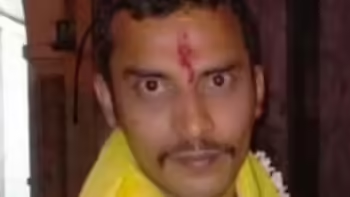
The resignation of Sandip Ghosh, the orthopaedic surgeon and principal of the college, came in the wake of intense protests related to the incident. Ghosh stepped down, citing his inability to withstand the relentless humiliation from social media backlash and disparaging comments from politicians. His resignation was quickly followed by his appointment as the principal of Calcutta National Medical College, a decision that incited additional public outrage.
It’s not just India; countries like Pakistan, Bangladesh, and even so-called first-world nations have witnessed the horrific violence. It shocks me to the core, fills me with pain, and sends chills down my spine – for myself, and for the women I care about. And the most troubling question is, how long must we endure this suffering and torment? Imagine a sex worker in Kolkata begging men to come to them instead of raping innocent women. What have we become, and what kind of mindset are we fostering?
In Lahore, Pakistan, a disturbing incident surfaced involving a taxi driver from an online ride-hailing service. The FIR reports that the driver is accused of raping a woman in the Sabzazar area. The woman had booked a ride through the app to reach her friend’s residence in Sabzazar. Upon arrival, the driver asked for water, then forcibly entered the home and assaulted the woman in front of her friend. When the victim’s parents arrived and confronted the driver, they ultimately chose to release him to avoid public shame and protect their family’s reputation. The police have filed a case against the driver and are conducting an active investigation, including searches at various locations to apprehend the suspect. This serious incident underscores the critical need for heightened awareness when using ride-hailing services and the importance of keeping family and friends informed of one’s whereabouts.
For too long, our responses to heinous crimes have been limited to symbolic gestures—lighting candles, changing profile pictures to black, commenting on social media, and then quickly moving on. We must pause and deeply consider the unbearable pain endured by the families of these innocent girls who have fallen victim to monstrous acts. The time has come to move beyond fleeting gestures and demand real change. We must hold the perpetrators accountable, reform our laws, and urgently advocate for legislation that mandates capital punishment for rapists.
If we can implement rapid changes to currency, convene special sessions to boost politicians’ salaries, and facilitate international travel with ease, why is there such reluctance to enforce stringent laws against rape? We must approach this critical issue with the same urgency and determination.
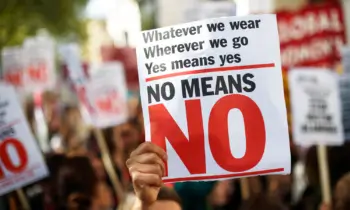
Over the past decade, despite the uproar and legal reforms following the Nirbhaya* case, crimes against women in Delhi have only escalated. Reflecting on the 11th anniversary of the Nirbhaya tragedy on December 16, it is disheartening to see that the situation remains bleak.
Of the six accused, one man, Ram Singh, reportedly died by suicide in jail shortly after the trial commenced. A juvenile involved in the crime was released in 2015 after serving three years in a correctional facility. The remaining four—Mukesh Singh, Pawan Gupta, Vinay Sharma, and Akshay Kumar Singh—were eventually convicted and executed in Tihar Jail, New Delhi on March 20, 2020.
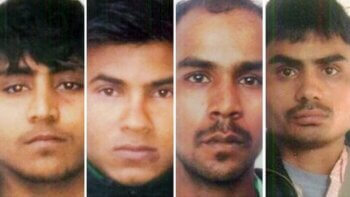
Despite these actions, the culture of impunity persists. Crimes against women continue to rise, and there remains a glaring lack of fear among those who commit such heinous acts. In some cases, even political figures have been seen showing solidarity with individuals accused of sexual misconduct. The ongoing sexual harassment case involving Brij Bhushan Sharan Singh, a well-known figure, highlights a concerning trend, as he remains at liberty despite serious allegations. Brij Bhushan, a BJP Member of Parliament (MP) and former president of the Wrestling Federation of India (WFI) continues to face these accusations without facing immediate consequences.
Dr. Moumita Debnath – The incident occurred in a seminar room where she had taken refuge after a late-night shift. The brutal attack sparked a wave of protests, with thousands of doctors going on strike to demand safer working conditions. The public and medical community’s outrage highlighted systemic issues in workplace safety and the urgent need for justice.
The case has drawn significant attention and calls for action, emphasizing the need for stringent measures to protect healthcare professionals and address sexual violence effectively. The focus has been on ensuring accountability and improving safety protocols to prevent such heinous acts in the future.
How many instances of violence against women, akin to the Nirbhaya case, must we witness globally before we resign ourselves to a lack of expectations from our governments? Consider the scenario of a two-year-old child being picked up by a school van driver. Can one envision an eight-year-old girl being subjected to similar circumstances? Or perhaps her daughter is being treated inappropriately by her father?
The slow progress in strengthening rape laws is frustrating, often due to bureaucratic delays and lack of enforcement. Many are calling for harsher laws, similar to those in Saudi Arabia, believing that stricter penalties could deter offenders. However, effective solutions require more than just tough laws; they need comprehensive reforms, including better enforcement and support for survivors. Adopting severe laws alone may not address the root causes of sexual violence and should be part of a broader approach to creating a safer society.
The tragic story of the Kathua rape case is a stark reminder of profound sadness and outrage. In January 2018, the small village of Rasana in Jammu and Kashmir was shaken by the abduction, gang rape, and murder of an 8-year-old Muslim girl, Asifa Bano. The horror unfolded when seven men, including a juvenile, subjected her to unimaginable cruelty. Asifa, a member of the nomadic Bakarwal community, vanished for a week before her lifeless body was discovered about a kilometre from her village.
The horrific nature of the Kathua rape case drew both national and international outrage when charges were filed against the accused in April 2018. Protests erupted, led by groups like the Panthers Party, demanding justice for the 8-year-old victim, Asifa Bano. The situation was further inflamed by allegations that local Bharatiya Janata Party officials supported the perpetrators. On June 10, 2019, six of the seven accused were convicted, with three sentenced to life in prison and the other three to five years. The case faced additional controversy in October 2019 when an FIR was filed against six Special Investigation Team (SIT) members for allegedly coercing witnesses and manipulating evidence, compounding the tragedy.
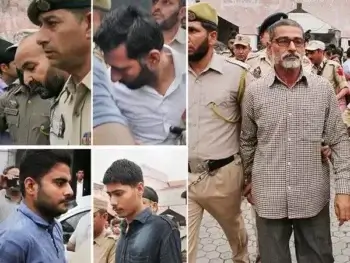
The heartbreaking tragedy of seven-year-old Zainab Amin Ansari, abducted on January 4, 2018, in Pakistan, Kasur, Punjab, has left a scar on Pakistan’s collective memory. Zainab was on her way to Quran classes when she disappeared. Her lifeless body was discovered five days later at a garbage site near Lahore. The autopsy revealed a horrific ordeal of extensive rape, torture, and strangulation. Imran Ali, a 24-year-old previously identified as a serial predator, was arrested as the culprit. He was linked to the brutal assault and murder of at least seven other young girls in the region.
Imran Ali, who was apprehended following the discovery of Zainab’s body in a garbage dump, was executed early Wednesday at Lahore’s Kot Lakhpat prison, according to police reports. Zainab’s father and family members were present for the execution. This case, one of the most egregious in a series of child murders in Kasur, ignited widespread outrage and protests across the nation. In addition to being sentenced to death for Zainab’s rape and murder, Ali was also found guilty of similar crimes involving six other girls.
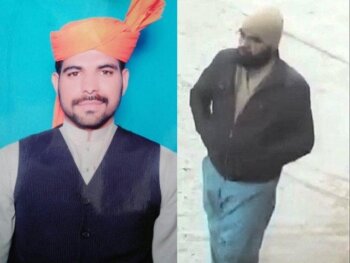
According to me, the rise in rape cases is not due to a single factor but a complex mix of societal problems. A significant part of the issue lies in weak laws and poor enforcement, which fail to adequately address and deter sexual violence. Additionally, societal attitudes that downplay or excuse such behaviour contribute to a culture where offenders feel they can act with impunity. The lack of proper education on consent and respect in schools and the media further perpetuates these harmful norms. Inadequate support for survivors and a lack of accountability for offenders exacerbate the problem, making it harder to address effectively.
To combat sexual violence and enhance personal safety, women should consider several strategies. Awareness and education about personal safety and self-defence techniques are crucial. Enrolling in self-defence classes can provide practical skills and boost confidence. Utilizing technology, such as safety apps that alert friends, family, or authorities in emergencies, can offer added protection. Establishing and maintaining clear personal boundaries, trusting one’s instincts, and having a well-developed safety plan can help in avoiding and managing dangerous situations. Familiarity with legal rights and available resources for reporting and seeking help is essential, as is building a strong support network of friends, family, and community resources. Addressing these issues comprehensively can lead to a safer and more supportive environment for everyone.
The rise in rape cases is a troubling issue affecting both South Asian countries and first-world nations. In South Asia, the increase is often linked to deep-rooted cultural norms and systemic flaws within legal and social systems. Societal attitudes that diminish the seriousness of sexual violence, weak law enforcement, and inadequate support for survivors contribute significantly to the problem. It’s not just these girls—countless women are raped every fifteen minutes, and many of these crimes go unreported. Authorities, including the police, often refuse to acknowledge complaints, dismissing victims with harsh words and placing the blame on them for the assault.
In first-world countries, while legal frameworks and support systems may be more advanced, rising rape cases can still be attributed to factors such as social attitudes, inadequate education on consent, and issues with the reporting and prosecution of sexual offences. In both contexts, the growing number of cases reflects broader societal issues that need to be addressed through comprehensive legal reforms, better support for survivors, and a cultural shift towards greater respect and equality.
The tragic loss of Dr. Moumita Debnath and other women who have fallen prey to rape underscores a critical failure in our systems. This failure is not just about the inadequacy of laws or the enforcement of justice but also reflects a broader societal breakdown in protecting vulnerable individuals. These heartbreaking cases reveal deep-seated issues in how the legal and social systems handle allegations of sexual violence, often leaving victims without the support and justice they desperately need. The tragic outcomes highlight an urgent need for systemic reform to ensure that every woman’s voice is heard, their rights protected, and justice delivered.
I penned this poem while working on this piece. My heart goes out in prayer for all the women and girls, and their families, who have endured such profound suffering.
In shadows deep, where silence falls,
Brave voices rise, and their echoes call.
For those who’ve fought and those who’ve cried,
In pain and loss, they’ve lived and died.
For the ones who struggled, made it through,
Their scars are a tale of courage true.
For the lives lost, their stories told,
In hearts and minds, their spirits hold.
May their courage light the way,
In every dawn, a new day’s ray.
For every soul that faced the night,
We stand for justice, hope, and light.
– Mehak Kapoor
Mehak Kapoor | Features Editor - Entertainment
Author
Mehak Kapoor (@makeba_93) is an entertainment and lifestyle journalist with over a decade of experience in anchoring and content creation for TV and digital platforms. Passionate about storytelling and factual reporting, she enjoys engaging with diverse audiences. Outside of work, she finds solace i...



























































